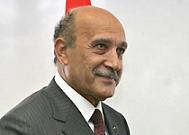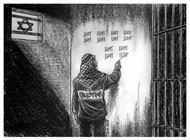The Greek historian Plutarch documented that Alexander the Great, while on campaign, slept with a copy of Homer’s Iliad under his pillow. The Iliad, the epic account of the Trojan War, was an inspirational and popular work that promoted the valor, dignity, glory and heroism of the ancients. There is little substantial or conclusive evidence to suggest that the event even existed – viewed more as myth transcending history, not to mention that it ostensibly occurred five centuries before Alexander even crossed the Hellespont to confront the Persian Empire. Nevertheless, the man supposedly dubbed “little Achilles” used the epic poem to reminisce and idealize about the era of heroes, attempting to rejuvenate this standard of excellence in his own time and viewing the poem as a handbook for the art of warfare.
One must only refer to Alexander’s epithet to decipher his legacy – “Great”. If the Iliad was the impetus or driving force behind Alexander’s success from which he extracted great influence and counsel, as some scholars maintain, then one must seriously laud this piece of literature as an integral component of Alexander’s modus operandi.
Similarly, there is a five century old book that has surely been resting under the pillow of Israeli prime ministers since 1967 – its spine broken from the reader indicating relevant passages of text to a colleague while its pages are dog eared and crumpled from excessive use.
This book has also been greatly revered and respected since it was released, following its initial presentation to the Magnificent Lorenzo di Medici in the first quarter of the sixteenth century. The author’s somewhat brief work has been judged as an exceptional example of original thought while the writer is considered one of the prominent political theorists and philosophers in history. The paradigm he created, which advocates the greater significance of practical responses in favor of ideological explanations in politics, became one of the founding pillars of what was to be called “realpolitik” [real politics].
The author in question is none other than Niccolo Machiavelli, the founder of the Machiavellian school, and the book is his most famous composition – The Prince.
The Prince acts as a guide of how to understand the nucleus and essence of a state. What makes it weak, what emboldens it, what drives it, but most importantly, how to defeat it, expose its vices and subsequently control, administer and ensure its preservation once seized. The book sets out detailed criteria and a list of prerequisites required for a Prince’s success and recommendations as to potential threats.
Placed under the microscopic context of Israel [substituting the word Prince for Israeli Prime Minister], the initial stages of The Prince are most compelling and enlightening.
In Machiavelli’s chapter on “Composite principalities”, he lists six preconditions of paramount importance if a Prince wishes to secure and sustain a state once occupied sine qua non. Machiavelli advises that a prince must preserve the existence of the weak powers in the area; not increase the power of someone already powerful in the area; prevent the interference of a very powerful foreigner into the region; make sure his presence is felt in the state; erect settlements and refrain from completely crippling a power already within the state.
If these points are achieved, Machiavelli guarantees that the state will not only be kept and protected but attract little resistance and become difficult to lose.
It is no surprise, therefore, that subsequent Israeli prime ministers have latched onto this idea, placing their faith in the musings of a political theorist, implementing these ideas with precision while managing not to repeat the mistakes made by French King Louis XII in Italy [the case study adopted by Machiavelli as an instance where an authority failed to accomplish any of the six points thus leading to his own ruin] and essentially reinforcing Machiavelli’s thesis.
The first point worth exploring, due to its immediate relevance, is the emphasis on settlements to sustain one’s hold on a state. Machiavelli declares that such settlements will “fetter the state to you”. He continues that settlements are established with little or no expense and the operation will only inflict injury on the victims whose land and houses are expropriated for the new inhabitants. This will cause no harm, Machiavelli insists, because the victims are merely a minority who are too poor and scattered to mount any substantial resistance. In addition, the existence of settlements nullifies the need for a ubiquitous army presence which, contrary to settlements, would be a very expensive and draining venture.
The resonances today are astounding. There are approximately half a million Israeli settlers in the occupied territories of the West Bank and east Jerusalem. The issue of settlements is an extremely sensitive and contentious topic acting as one of the main barriers to peace and a concession Israel has promised to uphold by ceasing all settlement expansion under the terms of stage one of the roadmap. However, just this week, while peace talks are ostensibly in motion, Israeli Prime Minister Ehud Olmert confirmed that Israel is to build a further 750 units in the Givat Zeev “neighborhood” eight kilometers northwest of Jerusalem. Although the erection of settlements on occupied land is in violation of Article 49 of the Fourth Geneva Convention, therefore illegal under International Law, settlement activity has always been a fierce Israeli strategy. The pioneer, Ariel Sharon, admitted their importance highlighting that “everybody has to move; run and grab as many hilltops as they can to enlarge the settlements, because everything we take now will stay ours. Everything we don't grab will go to them.”
Taking into consideration the point of cementing an occupying presence in the acquired region in order to quell disturbances and monitor the political climate, Israel has been meticulous with the completion of this precondition. Israel’s presence is not just felt through settlements but also through the medium of over 550 checkpoints, a Separation Wall cutting into 8% of the West Bank and roads exclusively for Israeli use which account for 38% of the occupied land.
Mainly due to the conditions it imposes on the occupied territory and its possible chances of transferring control from Israel, the latter has been adamant to combat any introduction of a “very powerful foreigner” into the area. One solution proposed to gradually work towards peace and subsequently stop the occupation, is to have an interim international force, such as the UN, station troops in the West Bank and replace the Israeli forces. This replacement could be advantageous to the overall peace process but Israel has opposed the idea explicitly, knowing that such a plan could hinder their interests and rally the people of the occupied territory to the third party at their expense. In fact, with its close relationship with the US, Israel has managed to convince foreign powers that this presence is not necessary.
Stipulations one, two and six, applying the Palestinian model, can refer and center round Fateh, Hamas and Israel’s huge success in creating a balance of power rift between the weaker states in the region. Israel has incorporated a policy of preserving the weaker powers, as Machiavelli recommends, and has been careful not to extinguish one, as the disintegration of one will only increase the power of the other, opting to form equilibrium where they keep each other in check. Before Hamas was established, Israel focused on upholding the weaker parties by not eliminating them but extending just enough power for them to function and in the case of the Fateh-dominated PLO aimed to neutralize their threat by neither strengthening them nor outright annihilating them. What has ensued since 1988 and the formation of Hamas [thought to have been initially welcomed by Israel, even aided] is the existence of two powers bickering against each other and vying for power, assuming said power is even attainable. This power is a mirage. The only real authority is Israel and its ability to play each side off against the other, restricting and channeling their power while being cautious not to destroy any of them in the fear that the remaining party will grow in strength and threaten their hegemony. As it stands, the current state of affairs could not be better for Israel – Palestine has for the first time been turned into a duopoly. Hamas controls Gaza, Fateh administers the West Bank and the two, due to their conflicting relationship and ideologies cannot even come together and partake in dialogue, even when Israel commands a stranglehold over both of them. Further, it is clear that there can be no peace while Palestinians remain divided.
Machiavelli, in conclusion, wrote that “whoever is responsible for another becoming powerful ruins himself, because this power is brought into being either by ingenuity or by force, and both of these are suspect to the one who has become powerful”. The international community acquiesced and responded to Israel’s ingenuity and force by acknowledging the state declared by Israel in 1948. Israel is abundantly aware of this and will never succumb or shift power to anyone in the same way it achieved power, knowing that it invariably spells an end to their interests and jeopardizes their survival.
Whereas these are the policies executed in the West Bank, what is to become of Gaza? After all, Israel claims that since September 2005 Gaza is no longer occupied territory. On the contrary, Israel controls the borders, airspace, sea, population registry and tax revenues so will therefore be given the same Machiavellian analysis as the West Bank.
In his chapter on “How strength should be measured”, Machiavelli declares that it is an extremely arduous task to lay siege to a city which has been made a bastion by its “prince” and to a people who are not discontent with his rule. In their scrupulous attention to Machiavelli concerning the West Bank, the Israelis managed to commit one major misjudgment in their dealings with Gaza – they underestimated the power of the leadership there.
Israel thought that by restricting electricity, food and medical supplies into Gaza, along with constant air strikes and incursions that the people of Gaza would revolt against Hamas. In fact, the opposite has happened. Machiavelli writes that in such an instance, the initial raids and shock induced by the devastation caused by the assaults on the city [Gaza] will not affect the people as much while their spirits are high. In addition, as the enthusiasm dwindles, so much has been lost, the damage has been done and the people wonder how it can get worse, so the solidarity with their protectors is identified and consolidated further.
According to Machiavelli this human state is explained by the notion that “people consider themselves put under an obligation as much by the benefits they confer as by those they receive”.
Having realized their mistake, Israel has once again turned to the omniscient pages of the text. On reading, they will find that this position held by Gaza can only be sustained while their adversary possesses “adequate provisions and means of defense”. Evidently, Israel, through its blockade and strikes will attempt to target these and thus usher the downfall of the resistance. In the same way they shall take counsel from Machiavelli regarding Hamas’ calls for a Tahdi’a – a period of calm rather than a complete cessation. “Never allow disorder to continue as to escape war” as it merely postpones the inevitable.
Modern politics may entail ground breaking technology and a self professed enhancement of a “civilized” democracy which defends humanity, yet historical concepts and methodologies remain remarkably relevant. Adherence to realpolitik and the adoption of such a process implies that there is an ultimate goal and vested interests, exclusive to Israel, at play – it is one of the underlying principles of realpolitik. These are easily ascertained with respect to Israel. Israel wants to preserve its existence and dominance by prohibiting the independence of its occupied peoples, endorsing instability, appeasing the international community and provoking their “peace partners” by stalling and incorporating ambiguous messages until facts are created on the ground that either greatly benefit their cause or make any future deal beyond the realms of possibility. Disconcerting as it may appear, Israel has adopted this theoretical model, customized it, modernized it and applied it to a modern context. In the process, Israel has become the quintessential manifestation of a Machiavellian state.












